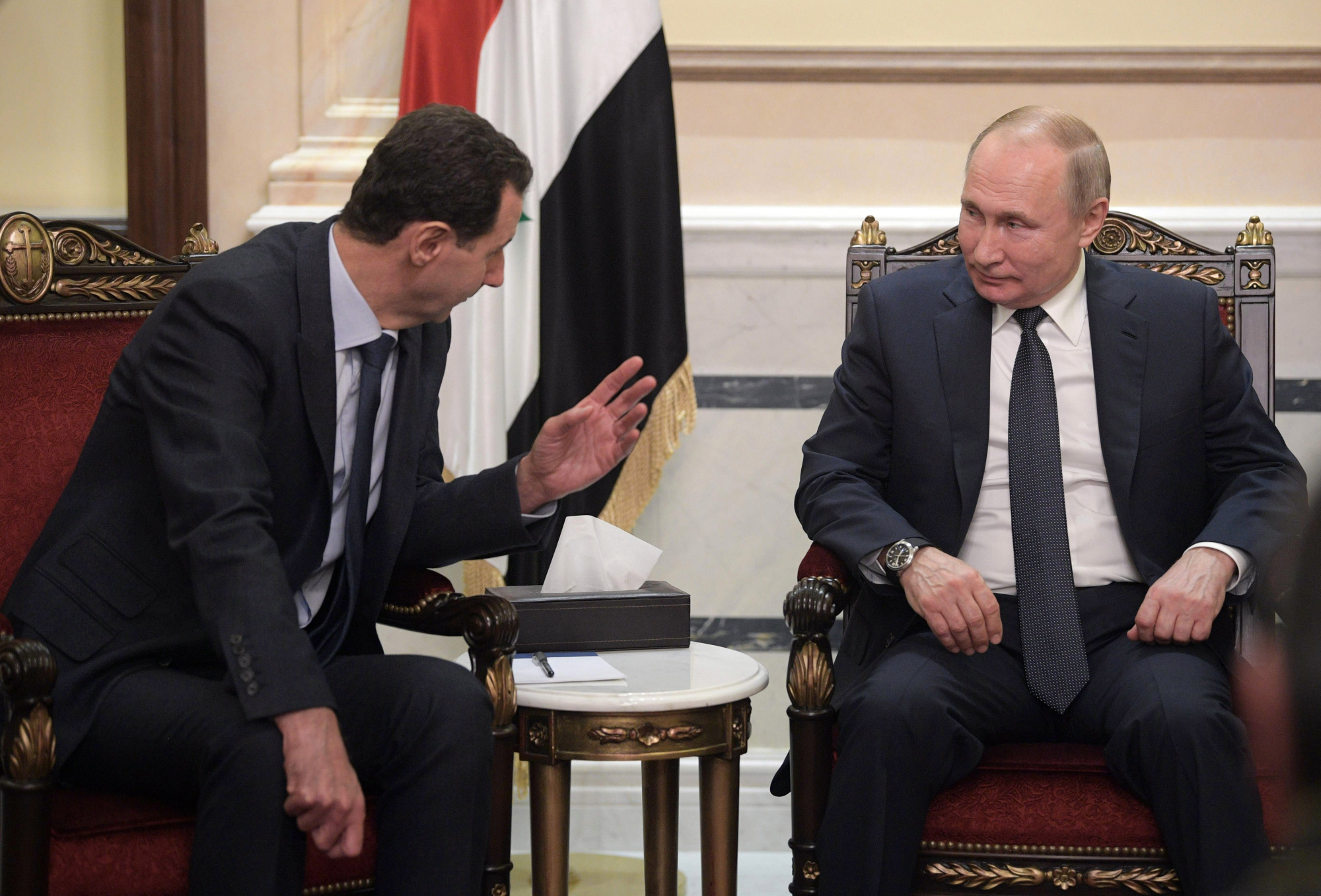Iranian Gen. Qassem Soleimani, killed last week by a U.S. drone in Baghdad, has been credited with persuading Russian President Vladimir Putin to intervene militarily in Syria in 2015, a claim the Kremlin denies. Regardless of the truth of that particular story, though, the inevitable escalation following Soleimani's death has the potential to change Putin's calculus in the region.
Commenting on Soleimani's demise, the Russian Defense Ministry praised his "indisputable contribution" to defeating the Islamic State group in Syria. The ministry credited him for organizing an armed resistance to Islamic State long before the United States created its own anti-IS coalition. Indeed, if it weren't for Iran's so-called Axis of Resistance, which includes the Hezbollah militia in Lebanon and other regional armed groups, it would have made no sense for Russia to enter the Syrian conflict.
Hezbollah and Iranian forces commanded by Soleimani provided the boots on the grounds that Russia was unwilling to spare, supporting Syrian President Bashar Assad's bloodied and exhausted troops to turn the tables on Assad's enemies, including the U.S.-backed Syrian Democratic Forces. It was important to Putin that Assad didn't stand alone. If that were the case, he'd be easier to write off than to back.



















With your current subscription plan you can comment on stories. However, before writing your first comment, please create a display name in the Profile section of your subscriber account page.